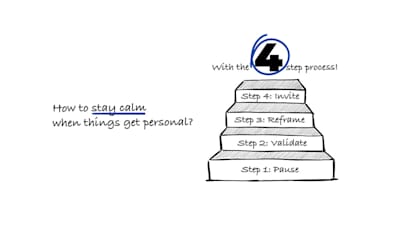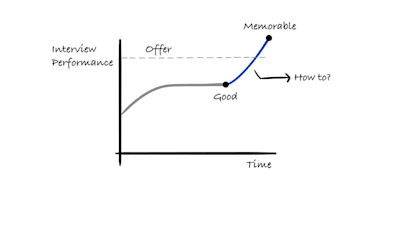
on
*sdílené články jsou řazeny od těch podle mě nejlepších po dobré

on

on hbr.org
Numerous researches have shown that we forget much of what we experience in a day. Knowing this, how do you create messages so there is a better chance of people remembering them? The author uses concepts from memory science to help you craft messages — whether it’s a presentation, an email, or a speech — that will be likely to stick.

on newsletter.eng-leadership.com
As a leader, your evaluation is no longer based solely on your individual contributions; instead, it depends on the success of your team and projects. This is a crucial point to remember as an engineering leader. This article outlines how to be an effective manager in the tech industry, highlighting specific traits that are essential for success.

on newsletter.pragmaticengineer.com
Laura Tacho, CTO of DX, shares findings from 180+ companies on how AI is really impacting dev productivity, what most teams get wrong, and why measuring dev experience first is critical.

on hbr.org
When stepping into a new leadership role, giving feedback can feel risky—but delaying it can be just as costly. Thoughtful, well-timed feedback can build credibility, strengthen relationships, and set the foundation for a culture of trust and accountability. Four strategies can help leaders in a new role offer feedback with clarity and confidence: assess the organizational landscape, fast-track trust through vulnerability, align feedback with team members’ aspirations, and balance directness with empathy. Thoughtful, well-timed feedback can build credibility, strengthen relationships, and set the foundation for a culture of trust and accountability.

on hbr.org
Like any living systems, teams need regular care, attention, and intentional renewal to thrive. Whether driven by restructuring, relationship tensions, demotivation, or strategic pivots, there comes a moment when a team needs more than a tweak. It needs a relaunch. By pausing to reassess, reset, and realign, leaders can reenergize their teams and strengthen trust. Relaunching a team isn’t a sign of failure—it’s a sign of leadership.

on www.fastcompany.com
Scientist Zorana Ivcevic Pringle has studied creativity for decades. Here’s her best advice for tapping into a creative mindset.

on newsletter.eng-leadership.com
6 real-world stories and the 4-step framework for resolving conflicts effectively!

on read.highgrowthengineer.com
This article provides a clear, actionable, and memorable framework for communicating your impact. The framework consists of 5 levels, and each level builds upon the previous one, showing how one bad example can be transformed into an amazing example by laddering up the communication levels.

on hbr.org
Most leaders enter high-stakes conversations armed with rehearsed arguments and rebuttals to anticipated objections—mindsets that unknowingly blind them to breakthrough insights and put their relationships at risk. The “Curiosity Check,” a rapid, pre-conversation diagnostic, helps leaders shift from defensive certainty to productive curiosity.

on hbr.org
Over one quarter of workplace meetings leave employees with lingering negative effects such as lowered engagement and productivity that can last hours. This is called a meeting hangover. Learn to prevent it as well as cure it.

on plus.rozhlas.cz
Myšlení je projevem intelektuální poctivosti, je přesvědčený Martin Poliačik, odborník na komunikaci a kritické myšlení a také bývalý politik. „Klíčová je vnitřní motivace, díky které můžeme věci kolem nás zpochybňovat a přemýšlet o nich,“ říká pro Český rozhlas Plus. V knize Pořádek v hlavě začíná přirovnáním: „V letadle svého života si můžeš vybrat – budeš pilotem, nebo jen pasažérem? A pokud jsi pasažérem, zeptej se sám sebe: kdo vlastně řídí?“

on terriblesoftware.org
Discover why engineers hate managers, the common management anti-patterns that destroy trust, and practical solutions from someone who’s been on both sides.

on newsletter.eng-leadership.com
Interviewing for an Engineering Manager role (and beyond) is vastly different than interviewing for an IC role. The challenge with such interviews is to showcase a good mix of leadership, communication and problem-solving abilities + a good foundation in engineering principles. Learn the exact formula to be memorable in EM interviews and secure your next offer!

on open.spotify.com
With some high-profile CEOs demanding workers return to the office five days a week, and others touting the benefits of fully remote work, many companies compromised and ended up somewhere in the middle. But that hybrid compromise can often bring the worst of both worlds. Wharton professor Peter Cappelli and senior HR strategist Ranya Nehmeh have looked deeply at what is going wrong with hybrid – and how leaders can make it right. They explain practical ways to improve meetings, build culture, and inspire commitment from employees in a hybrid model, which is most likely here to stay. Cappelli and Nehmeh are the authors of the forthcoming book In Praise of the Office: The Limits to Hybrid and Remote Work and the HBR article “Hybrid Still Isn't Working”.
on open.spotify.com
Have you ever realized, partway through a project, that you and your boss aren't on the same page? Maybe your definitions of success differed, or their expectations were unclear. Maybe you couldn't get them to listen, or you couldn't figure out why they insisted on doing things a certain way. Managing up means tackling these disconnects head-on-and doing it through honest, well-timed discussions. Executive coach Melody Wilding joins Amy G to explain why alignment on goals and clarity around working styles are essential. They

on newsletter.eng-leadership.com
600+ engineering leaders have shared their insights on how their roles are evolving! Some other interesting numbers: * 50% worry there are fewer jobs available * 40% believe their team is less motivated to come to work than they were 12 months ago * 65% of respondents are worried about the recession

on www.fastcompany.com
Making difficult decisions is an inevitable part of being a leader. And at times, those decisions are unpopular. Yet in instances when it requires the efforts and cooperation of their team members, leaders have to find a way to get buy-in from the people that oppose those decisions in the first place. This isn’t easy, and requires a delicate balance.

on blog.alexewerlof.com
Gor senior technical leaders navigating Enterprise Architecture technical evolution. This guide clarifies key strategic frameworks, starting with Wardley Mapping vs. Pace Layering. We also explore how both concepts complement Team Topologies, linking competitive strategy and system governance to team design. Learn to apply these lenses for effective business capability mapping, architectural decisions, and justifying tech investments.

on charity.wtf
A few eagle-eyed readers have noticed that it’s been 4 weeks since my last entry in what I have been thinking of as my “niblet series” — one small piece per week, 1000 words or less, for the next t…

on www.joanwestenberg.com
Why? Let me copy a paragraph from the article: Constraints make solutions non-obvious. They force the kind of second-order thinking that goals actively discourage. Instead of aiming for a finish line, the constrained mind seeks viability. It doesn’t ask, “How do I get there?” It asks, “What’s possible from here?”

on newsletter.eng-leadership.com
There is no one leadership style. If you are considering moving from coding to managing people, this is an article for you. You are a lot better leader than you may think, this is why!

on newsletter.eng-leadership.com
Are you sharing knowledge with others, or are you becoming a bottleneck? Here's how to find out! Taking time off is essential, regardless of your role. Even a CTO needs a break. This is why it's important and how you can prepare for it.

on www.fastcompany.com
Considering a promotion can be exciting, but it's important to ask yourself three fundamental questions first. Achieving a promotion isn't solely about wanting it or sticking around long enough. First, check if there is a position available within the organization for you to move into. If there is no suitable role, then pursuing a promotion this year may not be feasible. Second, reflect on whether the job you would be promoted to is one that you genuinely desire. Third, assess whether you are prepared to take on the new set of responsibilities that come with the promotion. If you're aiming for a promotion this year, gathering information about these three aspects is essential.

on hbr.org
Leading a meeting to deliver bad news requires a careful balance between acknowledging the situation and allowing for a sense of optimism. Your words and tone can either provide comfort or increase stress. It’s important to find strategies that help you strike this balance. Additionally, avoid scheduling other meetings immediately after the all-hands meeting, and make sure to stay available for individual conversations. This article shows you how.
Přihlásit se k odběru nově přidaných inspirativních tipů pomocí RSS
Vedete technologický tým, máte na starosti marketing či HR v tech firmě a rádi byste se (nebo nejen sebe) rozvíjeli, ale nevíte, kde začít? Máte pocit, že se potřebujete ponořit do dalších témat a jen zajít na nejbližší akce či meet-up nemusí být dost?
Vyplněním e‑mailu se přihlašujete k obsahovému newsletteru tvůrce a souhlasíte s obchodními podmínkami.
